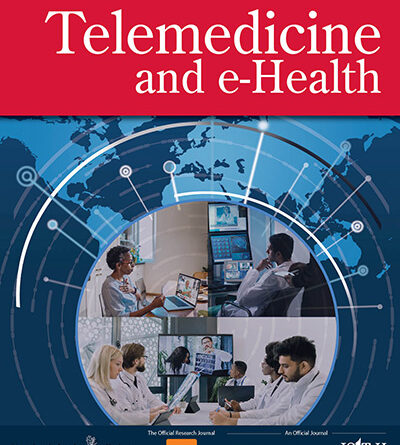Flies in the Castle Today—Walking the Line
Imagine your clinical or administrative boss saying, “We are not going to do this anymore! It was not the way we were trained.” They are speaking about the change in process or the fundamental approach to care using telemedicine and telehealth. Although it may very well be true, the older generation of providers were not trained in the integration and utilization of telemedicine and telehealth, but it is clearly in our approach today. Often individuals across the health care landscape go on about the care not being the same, they do not like it, do not accept it, or add your own idiom here. To use former U.S. Attorney General, William Barr’s recent phrase “that’s B—- S—-.”
This reminds me of a comedy sketch I listened to as a little boy on a 33 1/3 lp album no less. This sketch was Andy Griffith’s “The Discovery of America.” In this story, Griffith is explaining how Christopher Columbus got Queen Isabella to give him the money so he could sail across the world.1 During what I can imagine was a detailed presentation by Columbus to Queen Isabella I of Castile and King Ferdinand II of Argon (Catholic Monarchs of Spain), Griffith explains how Isabella was intently listening to the facts and figures from Columbus and Ferdinand was not really paying attention; his eyes transfixed upward. The idea, presented in the sketch here, implies that the information was perhaps nearly unbelievable. Perhaps even a stretch, it was the late 15th century after all. At the conclusion of Columbus’s presentation Isabella says “Ferd, what you think?” After espousing this several times, Ferdinand quips “I think there are a lot of flies in the castle today!”
The interpretation here is that one person believed in the concept and the other person believed it was BS. Thus, the idea of “flies in the castle today.” If you have ever been around a farm or ranch, you understand the analogy.
Many of us in fact have experienced this very reaction. Great ideas often come with heavy criticism. Many individuals may even say your ideas are without merit, unproven, not possible, not while I am in charge, and so on. Well the data say otherwise. The number of peer-reviewed articles, published on telehealth, now exceeds 60,000. This number has more than doubled in just 2.5 years. This is of course due to COVID and is only what is represented in PubMed. Other sources such as Web of Science and the Cochrane Database may have different values.
A second analogy is based on a Johnny Cash song “I Walk the Line.”2 This song, written in 1956, is based on the temptations that Cash felt at the time, and in less than an hour wrote the entire song. It was about staying true to one self and “walking the line.” What does this have to do with our discipline? Well we must stay true to our beliefs and how we get the outcome(s) we are seeking. Granted this song and eventually an award-winning motion picture tells a story of how Cash actually diverged from his “line” and remained true to his beliefs.
The same can be said of Columbus. In both cases, like all of us, they had ideals they pursued often in the face of what might be insurmountable challenges. But the outcome is almost assuredly beneficial. That is not to say, that in wake of these two individuals that there were not negative outcomes. Indeed there were. But change often is a double-edged sword. It is not a zero sum approach.
Change in health care delivery modalities will continue to emerge as technology evolves and it will be beneficial to society. But we must never lose sight of who is in our wake and how we accommodate all of them as well.
What Is in This Issue
This issue has short memoriam to Lord Roger Swinfen, who definitely lived his life to its fullest. Perhaps emulating in some small way what Columbus and Cash did in their lives. Lord Swinfen made sure that those who were disenfranchised had access to health care through telemedicine. There were not flies on his work and he definitely walk the line.
This issue has 18 excellent contributions to the literature, 7 of which are focused on COVID-19. Submissions from Brazil, Canada, Italy, Israel, Jordan, Norway, Spain, and the United Sates will enlighten you on the lessons learned in how telemedicine and telehealth were applied in the pandemic and a variety of clinical applications.
Enjoy this issue and check out the Andy Griffith video on “Discovery of America”!


